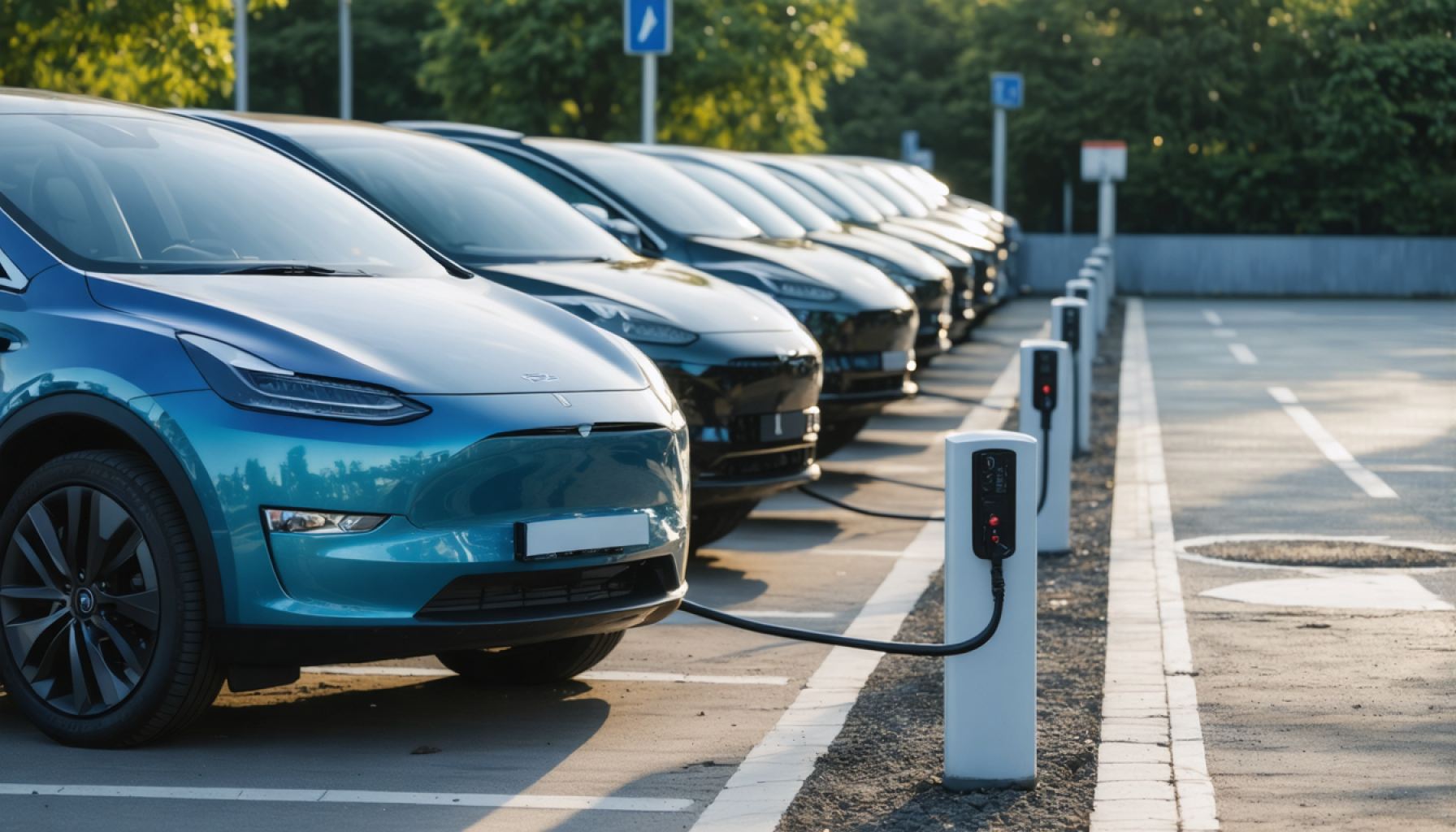- India’s EV market is rapidly expanding, set to grow from $3.2 billion in 2022 to nearly $114 billion by 2029.
- The growth rate of the Indian EV sector is significant, estimated at an impressive 66% annually.
- Key stakeholders include major automotive companies like Maruti Suzuki, Mahindra & Mahindra, and Tata Motors.
- Advancements in battery technology and charging infrastructure are crucial for the sector’s growth.
- The investment landscape in EV stocks is becoming increasingly attractive to investors looking for opportunities.
India is zooming into the electric vehicle (EV) revolution, stirring excitement akin to the buzz in the US market. This surge is fueled by a perfect storm of innovative technology, government support, and a growing appetite among consumers for greener alternatives. Major players like Maruti Suzuki, Mahindra & Mahindra, and Tata Motors are not just witnessing a surge; they’re at the forefront of a transformative wave.
The Indian EV market, valued at a mere $3.2 billion in 2022, is poised for a staggering leap to nearly $114 billion by 2029—a jaw-dropping annual growth rate of 66%! But this shift isn’t just about finances; it’s a pivotal strategy to combat pollution, reduce fossil fuel reliance, and champion environmental sustainability.
As advancements in EV battery technology and charging infrastructure thrive, investors are keenly eyeing this vibrant sector for lucrative opportunities. To navigate this dynamic landscape, here’s a snapshot of the top EV stocks that are leading the charge, based on their market capitalization as of February 18, 2025.
1. Maruti Suzuki India Limited: ₹4,02,120.89 Cr.
2. Mahindra & Mahindra Limited: ₹3,47,112.42 Cr.
3. Tata Motors Limited: ₹2,51,351.60 Cr.
4. Bajaj Auto Limited: ₹2,35,807.92 Cr.
5. Vedanta Limited: ₹1,63,532.43 Cr.
Seek out these investment opportunities as India speeds toward an electrifying future! Join the movement today and power up your portfolio with EV stocks!
India’s Electric Vehicle Boom: What You Need to Know
The electric vehicle (EV) revolution in India is gaining momentum, driven by a combination of technological advancements, governmental initiatives, and an increasing consumer shift toward environmentally friendly transportation. This surge is reminiscent of the excitement seen in the US market and is poised to reshape the future of mobility in India.
Market Overview and Growth Projections
The EV market in India was valued at approximately $3.2 billion in 2022 but is predicted to skyrocket to nearly $114 billion by 2029, translating to an astounding compound annual growth rate (CAGR) of 66%. This growth is not merely financial; it’s a strategic response to combat air pollution, decrease dependence on fossil fuels, and promote sustainable practices.
Key Innovations and Developments
1. Battery Technology: Innovations in battery technology, such as increased energy density and faster charging times, are vital for enhancing the performance of electric vehicles. Companies are investing significantly in research and development to create more efficient batteries.
2. Charging Infrastructure: The expansion of EV charging stations is critical. The Indian government aims to install a vast network of charging points across urban areas, facilitating easier access for consumers.
3. Government Policies: Initiatives like the Faster Adoption and Manufacturing of Electric Vehicles (FAME) scheme and various state subsidies are stimulating the EV market by making it easier and more affordable for consumers to switch to electric vehicles.
Investment Opportunities in EV Stocks
As interest in the EV sector grows, major companies are positioning themselves as leaders in the market:
– Maruti Suzuki India Limited: Market Cap – ₹4,02,120.89 Cr.
– Mahindra & Mahindra Limited: Market Cap – ₹3,47,112.42 Cr.
– Tata Motors Limited: Market Cap – ₹2,51,351.60 Cr.
– Bajaj Auto Limited: Market Cap – ₹2,35,807.92 Cr.
– Vedanta Limited: Market Cap – ₹1,63,532.43 Cr.
Investors are encouraged to watch these stocks as they play pivotal roles in the evolving landscape of the EV market.
Limitations and Challenges
Despite the potential, there are challenges to consider:
– Charging Infrastructure: While expansion is underway, the current network of charging stations may not meet demand in the short term, causing range anxiety among potential EV buyers.
– Cost of EVs: High upfront costs of electric vehicles compared to traditional fossil fuel cars can deter consumers, though government incentives aim to alleviate this issue.
– Battery Recycling: As EV adoption increases, the need for effective battery recycling methods is critical to ensure environmental sustainability.
Frequently Asked Questions
1. What is driving the growth of the electric vehicle market in India?
The growth is driven by innovative technology, government support through subsidies and policies, and a rising consumer demand for sustainable transportation options.
2. What are the investment opportunities in India’s EV market?
Investors can look at major companies like Maruti Suzuki, Mahindra & Mahindra, and Tata Motors, which are leading the charge in EV technology and production.
3. What challenges does the EV market face in India?
Challenges include the development of sufficient charging infrastructure, high vehicle costs, and the environmental impact of battery disposal and recycling.
For more insights on the Indian EV market and further developments, visit Business Standard.
